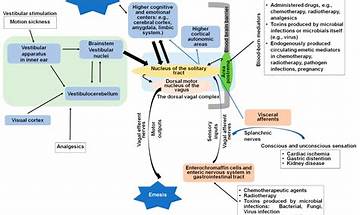The most effective model and algorithm summary of mathematical modeling competition, everything you want is here!

Summary of main methods and common algorithms of mathematical modeling
Main methods of mathematical modeling
Programming method: finding the optimal solution with constraints; Eg: make use of existing resources to arrange production to achieve maximum economic benefits;
Graph and network: the connection between something specific;
Queuing theory: also known as stochastic service system theory, it solves the problem of behavior, optimization and statistical inference of queuing system;
Game theory: also known as game theory and competition theory, it is a competitive problem, and each side strives to choose the most favorable scheme for itself, find the most reasonable scheme and solve it;
Analytic hierarchy process: omitted;
Interpolation and fitting: interpolation, finding the approximate function of known finite data points; Fitting, knowing the limited data points, seeking approximate function, not asking for the known points, only seeking the minimum deviation in a sense;
Statistical description and analysis of data (mathematical statistics): collecting, sorting, processing and analyzing statistical data to make it systematic and orderly, and showing the trend, characteristics and quantitative relationship of data are the basis of statistical inference, which requires parameter estimation and hypothesis testing;
Analysis of variance: the experimental results are analyzed by mathematical statistics to identify the influence degree of various influencing factors on the results. The concerned experimental results are called indicators, the controllable conditions are called factors or factors, and the state of factors is called levels. The methods include single-factor and multi-factor analysis of variance.
Regression analysis: statistical analysis of the fitting problem, the function obtained by curve fitting is point estimation, which should be tested by hypothesis or interval estimation, or evaluated by variance analysis; Eg: establish regression model according to experience, test the reliability, judge the influence degree of a variable on Y, diagnose whether the regression model conforms to the data, and preset/control Y by using the regression model;
Differential equation modeling: the definite solution problem of solving differential equations caused by the description of actual problems;
Difference equation: a mathematical tool for discrete state transition, which can discretize continuous models;
Steady-state model: the main purpose of modeling is not to seek every instantaneous behavior of dynamic process, but to study the characteristics of steady state in a certain sense, especially the changing trend of dynamic process after a long time;
Numerical solution of ordinary differential equation: discretization;
Numerical solutions of partial differential equations: difference method, Poisson, Laplace;
Markov chain model: a special random sequence, which studies the probability regularity in the process of random phenomenon change, and the change in future time is only related to the present;
Dynamic optimization model: there are variational methods and optimal control theory methods to find the optimal control function to make a functional reach the extreme value;
Neural network model: used for pattern recognition, image processing, intelligent control, combination optimization, financial forecasting and management, communication, robot and expert system, etc.
Goal planning: in practice, multi-objective problems (goals have different status) can be solved by weighting coefficient method, priority method and effective solution;
Fuzzy mathematical model: solving some problems with no obvious boundaries in classification;
Modern optimization algorithm: heuristic algorithm, which solves NP-hard problems, mainly includes tabu search, simulated annealing, genetic algorithm and artificial neural network;
Time series model: the time series, which is arranged in time sequence, changes with time and is interrelated with each other. The methods of analyzing time series include addition model, multiplication model and mixed model.
Storage theory: a discipline that studies the nature, operation law and optimal strategy of storage systems, which can be divided into certainty and randomness, input-> storage-> output;
Economic and financial optimization issues: mainly involving the use of lingo;
Optimization problems in production and service operation management: eg: equipment problems, blanking problems, interview sequence;
Grey system theory and application: as opposed to the white-box problem, for the problem that the internal mechanism cannot be clearly studied, the model is constructed according to some thinking logic and inference. Study the solution of practical problems in the absence or disorder of a large amount of information;
Multivariate analysis: multivariate statistical analysis method; Eg: cluster analysis, principal component analysis, factor analysis, judgment analysis, canonical correlation analysis, canonical correlation coefficient test;
Partial least squares regression: study the interdependence between two groups of multiple related variables, and use one group of variables to predict the other, which integrates the characteristics of principal component analysis, canonical correlation analysis and linear regression analysis;
Support vector machine: a powerful method to overcome the difficulties of "dimension disaster" and over-learning;
Sorting theory and method: job arrangement in production process.
Ten kinds of mathematical model algorithms
Monte Carlo algorithm (stochastic simulation algorithm): used for stochastic simulation in computer simulation;
Data processing algorithms (data fitting, parameter estimation, interpolation, etc.): image processing, data trend;
Programming algorithm: generally solve optimization problems, which can be solved by Lindo and lingo;
Graph theory algorithms: including shortest path, network flow, bipartite graph, Dijkstra, Floyd, Prim, Bellman-Ford, maximum flow, bipartite matching and other algorithms;
Computer algorithm: used for algorithm design;
Three classical algorithms of optimization theory: simulated annealing, neural network and genetic algorithm, solve difficult optimization problems;
Grid algorithm and exhaustive method: violent search, focusing on the problem that the model itself despises the algorithm;
Discretization algorithm of continuous data: using difference instead of differential and summation instead of integral;
Numerical analysis algorithm: MATLAB has been built in;
Image processing algorithm: problems related to graphics, problems that need to be explained by pictures, design pictures, etc.
Article source: Digital Model Paradise edited, first published in Digital Model Paradise, and reproduced without permission is prohibited.
Last six days: 2023, the 8th Summer Camp of Mathematical Modeling of Digital Dimension Cup is about to open.
In 2023, the "Higher Education Club Cup" National Mathematical Modeling Competition for College Students will be held from 18: 00 on September 7 (Thursday) to 20: 00 on September 10 (Sunday). Winning the national prize has become the preferred weapon for the insurance research. In order to quickly improve the mathematical modeling ability of the contestants, Inner Mongolia Innovation Education Association and Chengdu University of Information Science and Technology will hold the 8th Digital Dimension Cup Mathematical Modeling Summer Camp in Chengdu University of Information Science and Technology (Airport Campus) on August 9 -17, 2023. The award-winning rate of previous participants is over 80%, and the summer camp lasts for 9 days, which is divided into offline teaching, training guidance, question-and-answer exchange, homework tracking, grouping project practice and effect evaluation teaching, outdoor expansion and other links. During the summer camp, it will be This summer camp is honored to invite Professor Feng Weibing, proposer B of the 2021 Higher Education Cup Mathematical Modeling Competition, proposer E of the 2023 Huawei Cup Research Competition, and proposer A of the 2022 Digital Cup International Competition, to attend the summer camp activities, and to be the keynote speaker to exchange experiences on modeling issues such as special lectures, which will play a key role in helping all students win prizes in the National Competition. It is especially suitable for students of all grades who have a strong interest in mathematical modeling, and invites teachers and students who are interested in learning mathematical model knowledge and participating in mathematical model competitions all over the country to actively participate. This summer camp will set up personalized teaching programs for newcomers with zero foundation and students with certain modeling and programming foundation or who have participated in modeling competitions.Try to improve the team strength as quickly as possible in the shortest time and prepare for the national competition. After the end of the summer camp, the teachers and students who participated in the whole process will be awarded the certificate of completion stamped by the organizer.
Or copy the link below to register:
Sign up for official website: http://www.nmmcm.org.cn/activity_detail/34
Join the group to see the specific matters of the Digital Cup Summer Camp.
QQ:1532597773, 1786746895 (Summer Camp-Consultation)
Get the latest information such as summer camp materials, teaching contents and summer camp details in previous years.
Previous students generally gave feedback. After participating in the training of the Digital Cup Summer Camp, their mathematical modeling ability has been effectively improved. Many students gave feedback in the exchange and obtained good results in the competition, such as the first prize in the country and the F prize in the USA.
Declaration: All article resources on this website, unless otherwise specified or labeled, are collected from online resources. If the content on this website infringes on the legitimate rights and interests of the original author, you can contact this website to delete it.






